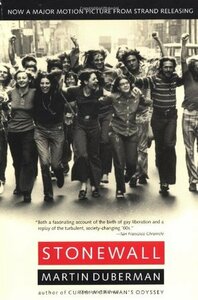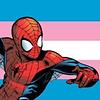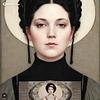Take a photo of a barcode or cover
adventurous
challenging
dark
emotional
informative
inspiring
reflective
sad
tense
medium-paced
emotional
informative
reflective
medium-paced
This is my second time reading this. I enjoyed it more the first time about a decade ago. Now it just leaves a lot to be desired. I don't agree with the authors premise right in their intro of historians using more macro methods of research take the humanity out of things like Stonewall. There is absolutely a way to take individuals from a significant event and use their personal stories to open up different aspects of that event. But there's too little of Stonewall to say that for this book for me personally. This definitely is more of a elongated profile of six people who were at Stonewall which is fine. This time around it felt a bit more...gossipy in parts? I'm not sure how else to describe it. A good starter book for someone but I would heavily encourage choosing more academically minded pieces if you want to learn about the queer movement and specifically Stonewall. If you want personal stories this is great.
informative
reflective
slow-paced
This isn’t really about stonewall and after reading reviews on this book I think it’s best to stop before this author makes me angry
hopeful
informative
inspiring
reflective
medium-paced
hopeful
informative
inspiring
medium-paced
challenging
informative
inspiring
reflective
medium-paced
informative
slow-paced
Seemed to be a bit all over the place. The narrative structure could’ve worked if the author focused on less. Also, this was misleading as the focus wasn’t exactly on Stonewall. However, the author provides a great history lesson and parts are very accessible.
informative
inspiring
The book follows 6 queer individuals from their childhoods in the 40s and 50s, through the Stonewall riots in 1969, and up until the Christopher Street Liberation Day parade that marked Stonewall's 1-year anniversary in 1970.
Some people have said they didn’t think the book “focused on Stonewall enough,” since the riots aren’t mentioned until after page 200, but I don’t agree with that. The riots didn’t just happen; they were a reaction to things that had been happening—and I thought the first 2/3 of the book was necessary to provide context for the events that eventually transpired, detailing not only how the sociopolitical climate was experienced by the six main characters, but also how it culminated in the riots themselves.
While I did like the wide-lens perspective and appreciated learning more about what was going on at the time-- society’s views and treatment of LGBT folks, the stance taken by various professional and medical organizations, and early activism efforts-- I’m glad the author decided to focus his narrative on a handful of individual stories, because it gave events a human face. Sections where Duberman strayed from his characters and focused more broadly on the gay rights movement were interesting, but tended to get a little dry and jumbled (possibly because of how many acronyms, manifestos, and side characters got involved.)
Several of the people he chose to follow had dynamic storylines and were very interesting to read about, whereas others (i.e. the women in particular) seemed like minor characters, without much connection to the events at Stonewall. It was telling that both women expressed “not quite fitting in”—either with the gay rights movement (as women) or the feminist and/or Black Power movements (as lesbians)-- but as a result, their experiences didn’t feel central to the story Duberman was telling. While I appreciate that Duberman included a variety of perspectives in his cast, I wish the women he chose to follow had more direct ties to the action—or that he gave them equal time regardless, and continued to focus on their disenfranchisement in greater depth.







